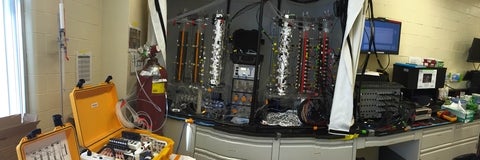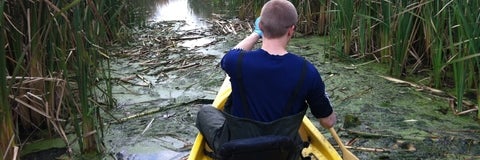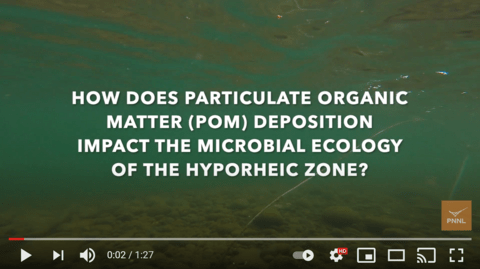Integrating Environmental Water Research Across Multi Scales and Disciplines
Water is our most precious natural resource. All human activities, from agriculture and industrial processes to domestic uses, depend on water of sufficient quantity and quality. This is also true for natural ecosystems. In contrast to highly visible water quantity stressors, such as flash floods and prolonged droughts, changes in water quality are often more gradual and more difficult to detect, and their cumulative impacts more difficult to predict and manage. Water quality deterioration, however, poses more pervasive and chronic risks to the economy, human health and the ecological life-support systems of the planet.
Water quality degradation is a global phenomenon. In Canada, for example, harmful and nuisance algal blooms are a persistent problem for many freshwater bodies, including the iconic Laurentian Great Lakes, while many of our First Nations communities still live under drinking water advisories. Globally, awareness is also growing that climate change adaptation must be an integral part of planning and implementing effective water management policies and practices.
For general inquires about the Ecohydrology Research Group, please email ecohydrology@uwaterloo.ca.
News
New paper co-authored by ERG researchers published in Environmental Advances
A new paper co-authored by Ecohydrology Research Group member Dr. Fereidoun Rezanezhad and Dr. Thai Phan from the Department of Earth and Environmental Sciences has been published in Environmental Advances. The study assessed the alternative use of the lepidolite extraction solid blended residue, containing elevated level of thallium (Tl), as fill material in post-mining land reclamation.
ERG and collaborators investigate particulate organic matter dynamics in hyporheic zones
The Ecohydrology Research Group is collaborating with scientists at the University of Wisconsin-Madison (UWM) and the Pacific Northwest National Laboratory (PNNL, in Richland, Washington) to study the transport and degradation of Particulate Organic Matter (POM) in hyporheic zones.
Ecohydrology group member publishes new paper in Nature Geoscience
Ecohydrology Research Group postdoctoral fellow Eunji Byun published a new article in Nature Geoscience titled "Extensive wetland development in mid-latitude North America during the Bølling–Allerød".




